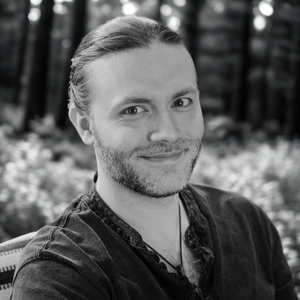
Modern success often comes at the cost of presence. This piece explores how professionals can find meaning and balance within the pace of modern work through somatic awareness and integration.
The modern workplace runs on paradox.
We’re told to be visionary, but never still. Collaborative, but never vulnerable. Purpose-driven, but always efficient.
Many executives and high-performing professionals quietly feel the same fatigue: an exhaustion that no vacation or meditation app can fix. It’s the weariness that comes from doing well at something that no longer feels whole.
You might look at your calendar and realize that every hour is accounted for, yet your life feels strangely absent from it. There’s nothing wrong, exactly — the work is meaningful, the compensation fair — and still, a quiet question hums beneath it all:
“Is this it?”
Capitalism, for all its momentum, has one core design flaw: it’s built to optimize output, not fulfillment. It rewards activity over awareness, growth over grounding.
That doesn’t make it evil. It just means that meaning can’t be outsourced to it. You can’t expect a system built for production to nurture presence.
For many professionals, the tension isn’t that they dislike their jobs — it’s that their work has outpaced their ability to feel alive inside it. Somewhere along the way, the metrics that once inspired you — targets, promotions, market impact — stopped connecting to your internal compass.
You may still believe in your organization’s mission. You may even love the thrill of building, leading, innovating. But you can sense something missing between the lines.
Something quieter.
Burnout isn’t just fatigue; it’s feedback. It’s the body’s way of saying, “You’ve gone too long without listening.”
The nervous system is a truth-teller. It keeps score of every unprocessed stress cycle, every swallowed emotion, every “just one more meeting.” Over time, the mind learns to normalize what the body cannot forget.
Executives are particularly vulnerable because they’re rewarded for overriding these signals — praised for resilience, admired for pushing through. Yet the same traits that make a leader successful can also make them blind to their own depletion.
In somatic work, we learn to read the body’s language again. We begin to notice the small contractions — the shallow breath, the jaw held just so, the subtle urge to multitask even in rest. These aren’t flaws. They’re breadcrumbs leading back to presence.
Balance is not about equal weight — it’s about dynamic relationship.
Work-life balance is often framed as a scale: work on one side, life on the other. But in truth, they’re not separate entities. The same nervous system that leads a board meeting also tucks in your children, negotiates a contract, or grieves a loss.
The goal isn’t to escape work, but to bring more of yourself back into it — to let curiosity, intuition, and compassion coexist with ambition.
That might mean small shifts:
Balance isn’t achieved through better scheduling. It’s restored through better sensing.
Most executives approach meaning as a cognitive problem to solve: a strategy deck for the soul. But meaning isn’t something you think your way into; it’s something you feel your way back to.
In somatic integration work, meaning emerges through connection — when the body, mind, and environment begin to harmonize again. It’s often subtle: a moment of deep breath, a surprising emotion during bodywork, a simple walk in nature that feels unreasonably real.
These moments recalibrate the nervous system — teaching it that safety and purpose are not outcomes to be achieved but states that can be practiced.
Disembodiment is the great occupational hazard of modern leadership. The higher you climb, the more abstract the work becomes — spreadsheets, policies, projections — all of it moving further from the tangible pulse of life.
Over time, the distance grows between doing and being.
Many leaders describe feeling detached, even when everything looks perfect on paper. They have achieved what they set out to do but can no longer feel themselves in the doing of it. This isn’t weakness; it’s a natural response to constant cognitive overload.
The antidote is not withdrawal, but reconnection — remembering that presence is a performance metric of its own. The more embodied a leader is, the more congruent and trustworthy they become. Teams feel it. Families feel it. The body feels it.
At Walk With Hart, we work with professionals who have mastered the art of performance but are relearning the art of being.
Through psilocybin facilitation and somatic integration, we create spaces where leaders can slow down enough to listen again — not to shareholders, but to themselves. The process isn’t about dismantling ambition, but about rooting it in authenticity.
Many of the executives we support are not trying to escape capitalism. They’re trying to humanize their place within it — to lead from a center that feels less transactional and more relational.
This isn’t rebellion. It’s repair.
When a leader learns to integrate — to bring awareness back into the body, emotion back into conversation, and empathy back into decision-making — the effects ripple outward.
Integration is contagious. A regulated leader creates regulated systems.
This is why somatic work and psychedelic integration are so powerful for professionals: they reintroduce intimacy into leadership. They reconnect the nervous system to its natural intelligence, replacing hypervigilance with discernment, and burnout with resonance.
True leadership begins where performance ends — in the willingness to stay connected when everything in the system says “speed up.”
This is not an argument against capitalism, productivity, or leadership. It’s an invitation to remember that systems can’t define meaning — only humans can.
Meaning begins when we stop outsourcing our value to achievement and start reclaiming our relationship with presence.
If you’re successful but unsettled, accomplished but empty, this isn’t the end of the story. It’s the body asking to be included again.
Walk With Hart offers somatic and psilocybin-based programs designed for professionals — not as escape, but as re-entry.
A space to listen, integrate, and rediscover purpose in motion.
Because the goal isn’t to leave the machinery — it’s to remember that you are not a cog in it. You are the hand that steadies its rhythm.

Every path branches into another. Wander through more writings on awareness, integration, and the quiet teachings of the natural world.